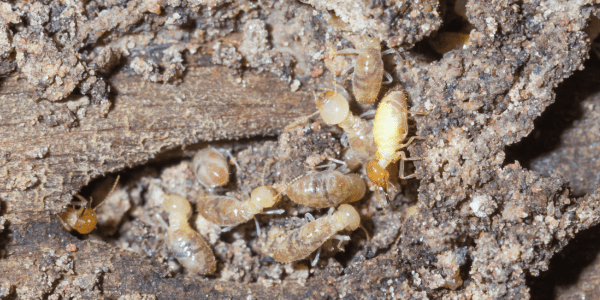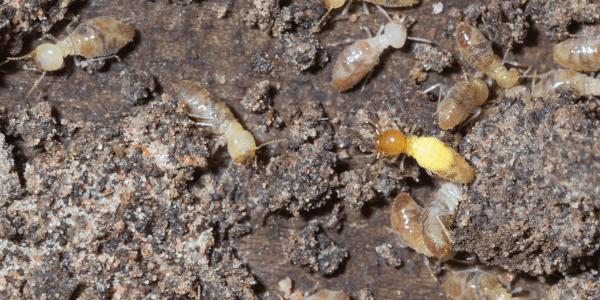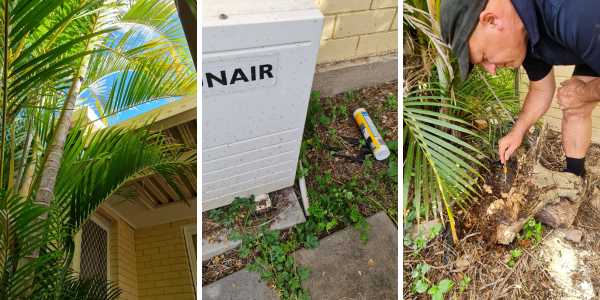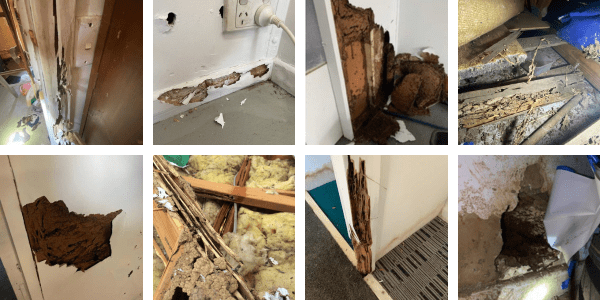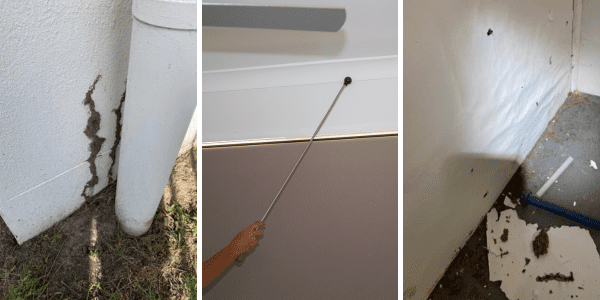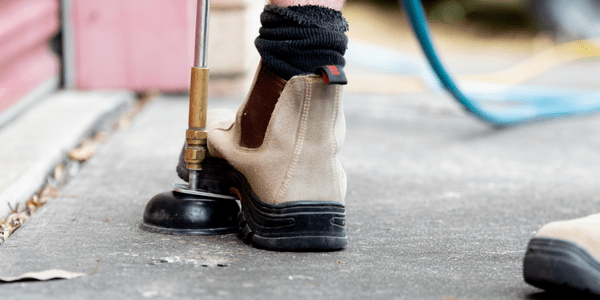How to Prevent Termites
Learn how to prevent termites and protect your home
Termites are one of the most feared pests when it comes to homeownership. These tiny creatures can cause significant damage to your property and cost you thousands of dollars in repairs. In addition, home insurance usually doesn't cover termite damage.
In this blog, we'll take you through how to prevent termites so you can keep your home protected against these destructive pests.
Understanding Termite Behaviour
Termites may seem like tiny creatures, but their behavior can have a significant impact on your home. Understanding termite behavior is essential in preventing infestations and protecting your property. These destructive insects live in colonies and have a hierarchy, consisting of a queen, king, workers, and soldiers. The queen is responsible for reproducing and can lay thousands of eggs each day. Workers are the ones that do the damage, feeding on wood and causing structural problems.
Termites love moisture and wood, so keeping your home dry and maintaining any wooden structures is crucial. They can enter your home through small cracks and gaps, so sealing entry points is essential. Regular timber pest inspections are also vital for the early detection of termites.
How to Prevent Termites
To defend your home against termites, it's essential to implement preventative measures around your property. In addition to termite treatments and chemical barriers, there are several things you can do to prevent termites including:
1. Keeping your home and yard clean and well-maintained
Remove any dead wood or tree stumps, as these can attract termites. Trim any branches or vegetation that come into contact with your house, as they can provide easy access for termites.
2. Ensure that water drains away from your home
Termites are attracted to moisture, so fixing any leaks or plumbing issues and cleaning gutter and downpipes is important. Additionally, make sure air conditioners, downpipes and hot water tanks are properly diverted.
3. Trim back any overhanging branches or plants that overhang the roof
Termites are tricky creatures and can find additional ways into your home including through your roof via overhanging tree branches.
4. Get regular timber pest inspections
Whilst this won't prevent termites from entering your home, it will ensure that any termite activity is detected early - before significant damage occurs. A licensed pest inspector can conduct a thorough inspection and detect any early signs of termites that you may have missed.
5. Know the signs of termites
Keep an eye out for any signs of termites throughout the year by knowing the signs of termite activity and damage. Continue reading to learn the signs of termites. Remember to take immediate action if you suspect there's an infestation.
By taking these preventative measures and staying vigilant, you can significantly reduce the risk of termite infestation in your home.
Regular Termite Inspections are Essential to Keeping Termites Out
Regular termite inspections are an essential step in protecting your home from termites. These inspections should be done annually by a professional pest control company. While it's important to take preventative measures and watch for signs of termites yourself, a professional inspection ensures even small signs are detected.
During an annual termite inspection, a trained technician will thoroughly examine your property for any signs of termites or termite damage. They will inspect all accessible areas of the house and yard within 30 meters of the house. This includes the interior and exterior of your home, roof void and subfloor (if safe to do so).
In addition, the pest inspector will also check the home’s current termite management system and identify any conducive conditions to a future invasion. The pest inspector also uses specialist equipment to detect areas of high moisture and other signs of termite activity.
It's important to note that termite inspections are not a one-time solution. Regular inspections are necessary because termites can infest your home at any time and early detection is crucial in preventing damage. So, don't forget to schedule your annual timber pest inspection and always check for termites on your own as well.
Common Signs of Termites
When it comes to protecting your home from termites, it's crucial to be able to recognize the common signs of their presence. By catching the early warning signs, you can take immediate action and prevent extensive damage. Here are the most common signs of termites:
1. Mud Tubes
These tubes, usually found along the foundation or walls of your home, are built by termites as a means of traveling and protecting themselves from predators.
2. Damaged Wood
You may also notice damaged wood, which termites feed on and hollow out. This can lead to weakened structures and sagging floors.
3. Hollow Sounding Timber
If you tap on wood and hear a hollow sound, it may be an indication of termite damage as termites eat wood from the inside out.
4. Swollen Floors or Ceilings
If you notice a floor or ceiling that is swelling or bulging, it could be a sign of damage from termite activity. Be particularly wary of this sign of termite activity, as it will generally mean significant damage has been done by the time you see swelling floors or ceilings.
5. Clicking Sounds in Walls
When there is a large infestation and if you’re close enough to the wall, you may be able to hear clicking. Termites make this noise as they consume timber and mingle together.
If you notice any of these signs, it's crucial to contact a professional pest control company to assess the situation and implement the necessary treatment options.
Termite Treatment Options
When it comes to dealing with a termite infestation, there are several treatment options available to homeowners. The specific treatment method will depend on the severity of the infestation and the type of termites involved.
1. Spot treatment to kill the live termites
The spot treatment is a slow-acting chemical that is sprayed onto the termites which they then take back to the nest, killing off the whole colony. This treatment is only relevant if there are live termites.
2. Installation of a chemical termite barrier
A slow-acting chemical is installed around the entire perimeter of the house to protect against subterranean termites for up to 8 years. Whilst it’s not 100% termite-proof, it is currently the best protection available.
3. Installation of termite bait stations
This method is generally used when a house is not suited to a chemical termite barrier. Instead, bait stations are filled with treated timber and installed at intervals around the perimeter of the property.
It's important to note that termite treatment is not a one-time solution. Regular inspections and preventative measures should still be implemented to ensure that termites do not return. At Dedant Building and Pest Inspections, our pest inspectors are specially trained to determine the most effective treatment option for your specific situation.
If you have found termites, don't disturb them!
Termites are shy, elusive creatures that will find a new hiding spot if exposed. If you have accidentally exposed them, cover them back up and call a licensed pest inspector as soon as you can. They will be able to treat the termites and provide you with recommendations for prevention.
Don’t try and handle the problem yourself by spraying fly spray or other chemicals onto them. This only aggravates the termites and causes them to hide in another location - making it harder for a licensed pest inspector to locate and treat them.
Book a Timber Pest Inspection or Termite Treatment Today!
At Dedant, all our inspectors are licensed and highly experienced at conducting timber pest inspections, termite treatments and installing chemical termite barriers.
We have been servicing Brisbane, Redland Bay, Moreton Bay, Gold Coast, the Scenic Rim, Sunshine Coast, Ipswich and Logan since 2009.
If you have any questions or would like to book, contact us on 07 3807 0122 or via our website.

